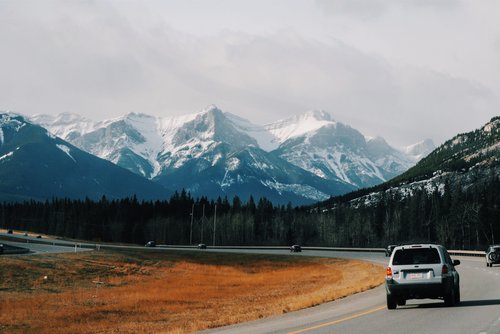Whale Watching: A Must Do in Vancouver
marks my five-year anniversary of living on the beautiful west coast in Vancouver. Throughout my time living here I've always been interested in exploring my own city and trying new things. Recently, I realized that I’ve never been whale watching before.
The west coast of Canada is so immersed in nature that it’s easy to take our surroundings for granted. I almost can’t believe that it’s taken me all of five years to come up with the idea to go whale watching!
I did some shopping around online to find the best tour company, and after some careful research I found Steveston Seabreeze Adventures. Their prices are very reasonable and their customer service was exceptional. Steveston Seabreeze Adventures also guarantees whale sightings. If you don’t see anything they’ll give you a free pass to return. I was sold!
We arranged to be picked up by one of their shuttle buses from downtown Vancouver. The shuttle took us out to Steveston, which is a small fishing village located 15-20 minutes south of Vancouver International Airport.
Our whale watching boat departed out of the mouth of the mighty Fraser River, British Columbia’s largest. Driving our boat was Captain Mike and also on board was Naturalist/Biologist Rachel who shared interesting information regarding the wildlife we encountered.
Moments after we left the marina Captain Mike slowed down our boat next to the breakwater rocks. Sea lions were basking in the sunshine on the rocks!
We left the sea lions behind and the boat took off into the Straight of Georgia headed towards the Gulf Islands. The water was a bit choppy, and since I have always been a little frightened of small boats I was hanging on to anything that I could find. My ridiculous fear of small boats comes from an experience I had as a child on a friend’s fishing boat. I was crying and screaming the whole time and hated every minute of it. All I wanted was to get off that boat! Eventually I tired myself out from all the crying and fell asleep for the rest of the trip. Luckily, I've somewhat gotten over my fears now!
After we had crossed the Straight of Georgia the ocean calmed and it was smooth sailing for the rest of the trip. The scenic ride through the Gulf Islands alone was worth the price of the tour.
Captain Mike informed us that there had been sightings of orcas near Saltspring Island, which is one of the smaller islands at the south end of Vancouver Island.
Our boat cruised towards Saltspring Island and we caught up with a whole convoy of other whale watching tours. As much as I loved every minute of our tour, I couldn’t help but think about what the whales thought of all the boats following them. I wonder how much of a disturbance the boats are. How loud are the engines under water?
Even though there’s nothing better than seeing a species in their natural habitat, how close is too close? How invasive are we truly being? I was glad that our Captain kept the boat at a reasonable distance away from the whales at most times.
In the distance we could see the first black fins poking out through the calm ocean surface. Everyone was eager and excited to see the whales and anytime a whale would surface all you could hear was the “click, click, click” sounds of cameras snapping photographs.
There are transient (mammal eating) and resident (fish eating) orcas that live and feed in the waters around British Columbia. Orcas can be identified by the patterns in the grey saddle patch located behind their dorsal fin and by any natural markings such as scars or scrapes on the dorsal fin.
Orcas are sometimes known as killer whales or blackfish. They have a long history as a part of indigenous legends and have been considered everything from sacred spirits to ruthless killers.
In reality orcas don’t really pose a threat to humans. In fact, there has never been a single fatal orca attack on a human in the wild. Attacks on humans have occurred in captivity when the whales are clearly in distress (check out the documentary Blackfish for more information).
Worldwide there are only 400,000 orcas left in our oceans. Issues such as oil drilling, pollution, over fishing, and habitat disturbance are the main problems that have placed orcas on the endangered species list.
“
In the end we will conserve only what we love. We will love only what we understand. We will understand only what we are taught.
”
The highlight of our tour came when two orcas swam straight towards our boat. Captain Mike turned off the engine and the whales surfaced right next to us. How cool is this? These are wild orcas! There really is nothing better than seeing animals in the wild.


